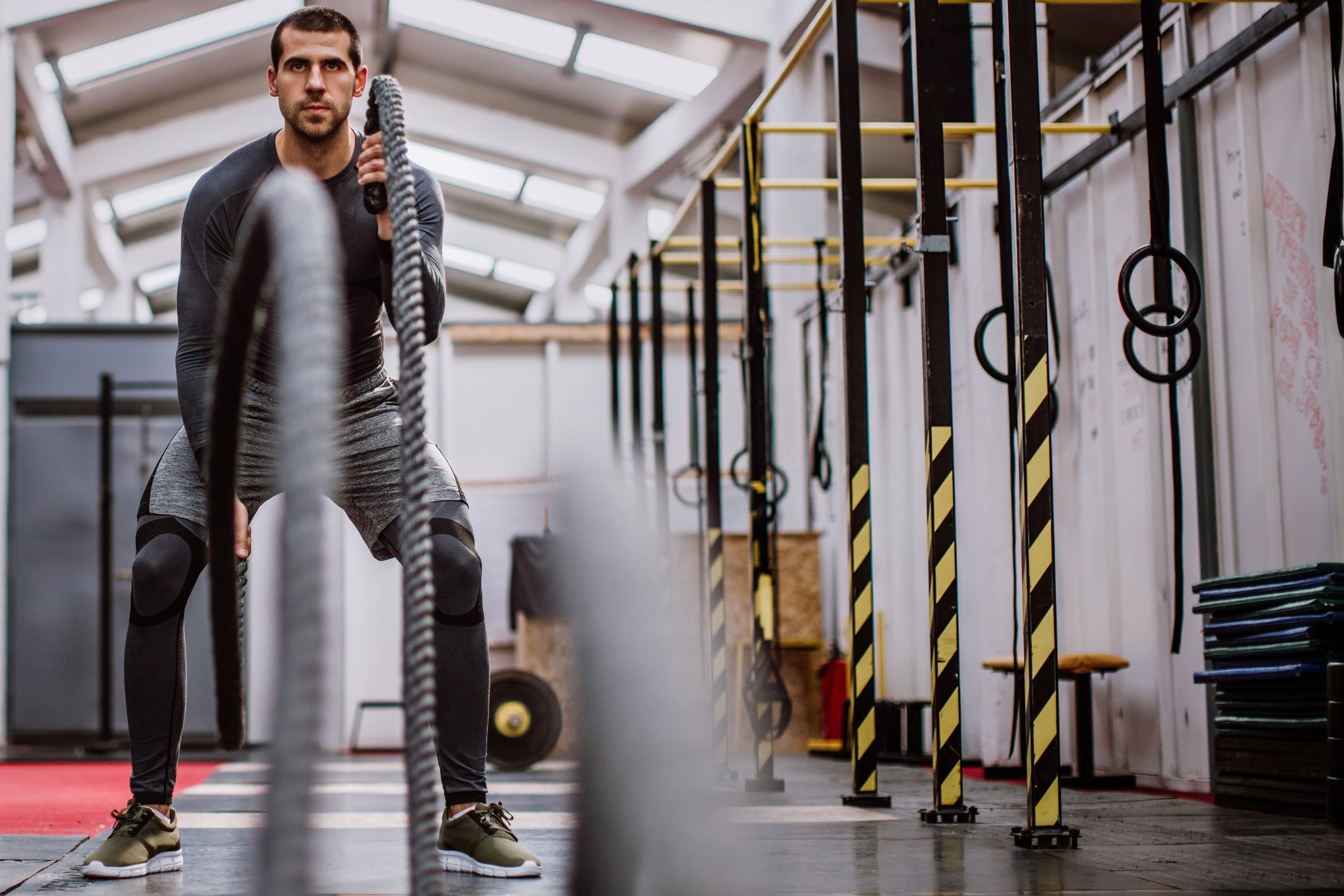Tribulus terrestris L. (TT) is a herbal dietary supplement for exercise and athletic performance. The herb is composed of saponins, flavonoids, glycosides, alkaloids, and tannins. The steroidal saponins, such as protodioscin and protogracillin, are thought to be behind TT's unique impact on sexual performance, coronary heart disease, avoidance of ischemia/reperfusion injury to the heart, and modulation of hypertension.
TT is attractive for athletes because of its potential ergogenic effects on sports performance, facilitating recovery after exercise, improvement of strength and stimulation of skeletal muscle hypertrophy associated with TT as a testosterone booster, and promoter of muscle anabolism.
CrossFit is a style of training based on functional movements known as “Workouts of the Day” (WODs) completed at maximum intensity. The continuous intense exercise has been said to directly influence an inadequate functioning of the hypothalamus-pituitary-testes axis and suppress testosterone secretion in the late stages of physical activity, causing performance to be compromised.
The authors of the current study therefore hypothesised that TT supplementation could be beneficial to this group of athletes yet no previous research has examined the impact of TT supplementation on CrossFit performance. The current randomised, single-blind, placebo-controlled trial aimed to fill this gap in knowledge with specific focus on their WODs sports performance, hormonal response, body composition, and perceived exertion.
The study
Thirty Crossfit-experienced males aged between 18 and 50 volunteered for the study. All participants followed the same diet during the study, supervised by a qualified nutritionist.
Assessments were made of body mass and fat mass and resistance and reactance measurements were obtained with a bio-impedance analyser.
The participants were randomised to take either two TT capsules (Quamtrax Nutrition Europe S.L. Fuenlabrada, Madrid, Spain) or two placebo capsules daily (control group, CG) for six weeks.
Participants carried out one hour Crossfit training session three times a week over the six week trial (the same workouts on the same days as one another).
Participants were monitored at baseline (T1) and post-treatment (T2) for rated perceived exertion (RPE) using the Borg CR-10 scale.
Total testosterone was determined by enzyme-linked immunosorbent assay (ELISA) and cortisol concentration was assessed by enzyme-linked fluorescence assay (ELFA)-based technology.
Results
Resulting data revealed that TT had no significant effect on WODs, body composition parameters (body mass, fat mass, free fat mass), cortisol, or testosterone/cortisol ratio. The team suggest the dose of TT administered was not optimal to achieve notable changes in body composition, in agreement with other studies.
TT supplementation did not affect athletes’ perception of exertion, fatigue, or vigour during exercise. These results follow those reported in endurance athletes supplemented with TT for eight weeks.
However, the authors say this is the first study to indicate a significant discrepancy of testosterone with or without TT extracts during training in humans. They say these results suggest that TT could be useful in maintaining homeostasis of the hypothalamus-pituitary-testes axis, promoting anabolic state, stimulating post-exercise recovery, and improving athletic performance.
The report states: "The dose 770 mg · day−1 of TT used in CrossFit-trained men does not appear to influence body composition, RPE, total strength, and anaerobic performance. However, our results suggest that it could potentially intervene in the recovery process by a tendency, although not significant, to increase serum testosterone and maintain a favourable trend in the testosterone/cortisol ratio, which would mean that it could potentially influence less fatigue and catabolism associated with exercise."
They suggest TT supplementation could be recommended for athletes playing sports at levels where the competition rules prevent adequate recovery.
They note a number of limitations of this study, including the small sample size, the lack of females, and the focus on just one type of athlete. They also note the lack of use of biochemical tests such as lactate dehydrogenase, creatine kinase, and myoglobin.
TT and testosterone
Discussing the potential mechanism of action for TT on testosterone levels, the report states that the steroidal saponins (gitonin, protodioscin, and tribulosaponins A and B) present in TT have an effect on androgen receptors in the brain, causing an underestimation of sex hormone levels, which causes the posterior pituitary gland to secrete more luteinizing hormone and, as a consequence, increase testosterone synthesis in the testes.
Protodioscin, in particular, is believed to increase the conversion of testosterone to dihydrotestosterone. Other mechanisms by which it is thought that TT may be able to increase testosterone levels are by increasing the levels of dehydroepiandrosterone (DHEA) molecules (precursor of testosterone) and by suppressing aromatase and preventing estrogen synthesis, and these may be by the activity of steroidal saponins, such as protodioscin and protogracillin.
Source: Nutrients
Fernández-Lázaro, D.; Mielgo-Ayuso, J.; del Valle Soto, M.; Adams, D.P.; González-Bernal, J.J.; Seco-Calvo, J.
"The Effects of 6 Weeks of Tribulus terrestris L. Supplementation on Body Composition, Hormonal Response, Perceived Exertion, and CrossFit® Performance: A Randomized, Single-Blind, Placebo-Controlled Study"


